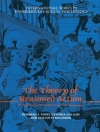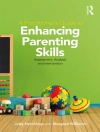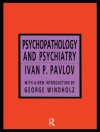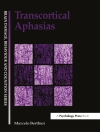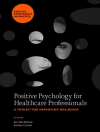This indispensable manual presents the leading empirically supported treatment approach for adolescents with anorexia nervosa (AN). What sets family-based treatment apart is the central role played by parents and siblings throughout therapy. The book gives practitioners a clear framework for mobilizing parents to promote their child’s weight restoration and healthy eating; improving parent-child relationships; and getting adolescent development back on track. Each phase of therapy is described in session-by-session detail. In-depth case illustrations show how to engage clients while flexibly implementing the validated treatment procedures.
New to This Edition
*Reflects the latest knowledge on AN and its treatment, including additional research supporting the approach.
*Clarifies key concepts and techniques.
*Chapter on emerging directions in training and treatment dissemination.
*Many new clinical strategies.
Family-based treatment is recognized as a best practice for the treatment of anorexia nervosa in adolescents by the U.K. National Institute for Health and Care Excellence (NICE).
สารบัญ
1. Introduction and Background Information on Anorexia Nervosa
2. Family-Based Treatment for Anorexia Nervosa
3. Phase I: Initial Evaluation and Setting Up Treatment
4. Session 1: The First Face-to-Face Meeting
5. Session 1 in Action
6. Session 2: The Family Meal
7. Session 2 in Action
8. The Remainder of Phase I (Sessions 3–10)
9. Session 8 in Action
10. Beginning Phase II: Helping the Adolescent Eat on Her Own (Sessions 11–16)
11. Phase II in Action
12. Starting Phase III: Adolescent Issues (Sessions 17–20)
13. Phase III in Action
14. Summary of a Completed Case
15. Where Are We Going from Here?: Training, Dissemination, Clinical Practice, and Research
เกี่ยวกับผู้แต่ง
James Lock, MD, Ph D, is Professor of Child Psychiatry and Pediatrics in the Department of Psychiatry and Behavioral Sciences at Stanford University School of Medicine. He is also Director of the Stanford Child and Adolescent Eating Disorders Program. The author of numerous scientific publications on eating disorders in youth, Dr. Lock is a Distinguished Fellow of the American Psychiatric Association and of the American Academy of Child and Adolescent Psychiatry. He is a recipient of awards including the Agnes Purcell Mc Gavin Award for Distinguished Career Achievement in Child and Adolescent Psychiatry from the American Psychiatric Association, the Price Family Foundation Award for Research Excellence from the National Eating Disorder Association, the Leadership Award in Research from the Academy of Eating Disorders, and Early and Mid-Career Development Awards from the National Institute of Mental Health.
Daniel Le Grange, Ph D, FAED, is Benioff UCSF Professor in Children’s Health in the Department of Psychiatry and UCSF Weill Institute for Neurosciences and Director of the Eating Disorders Program at the University of California, San Francisco. He is Emeritus Professor at the University of Chicago, where he was Director of the Eating Disorders Program until 2014. Dr. Le Grange was a member of the team at the Maudsley Hospital in London that developed family-based treatment for anorexia nervosa. Over his career, he has treated numerous adolescents and families struggling with eating disorders. He is a past recipient of the Leadership Award in Research from the Academy of Eating Disorders and an Early Career Development Award from the National Institute of Mental Health. The author of over 500 articles, books, book chapters, and published abstracts, Dr. Le Grange has published several books for professionals and parents in collaboration with James Lock, including
Help Your Teenager Beat an Eating Disorder, Second Edition.


